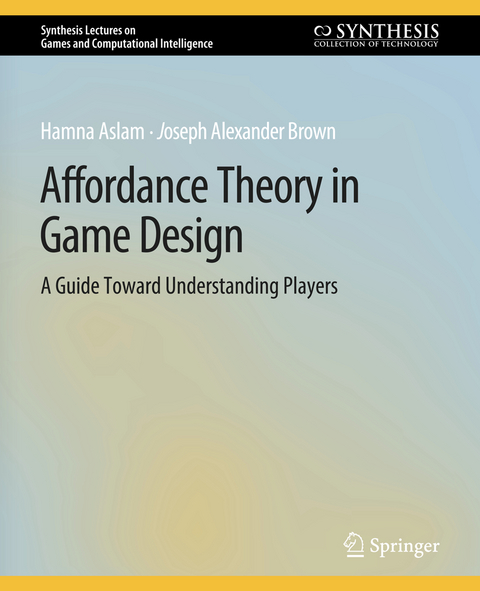
Affordance Theory in Game Design
Springer International Publishing (Verlag)
978-3-031-00995-2 (ISBN)
Games, whether educational or recreational, are meant to be fun. How do we ensure that the game delivers its intent?
The answer to this question is playtesting. However, a haphazard playtest process cannot discover play experience from various dimensions. Players' perceptions, affordances, age, gender, culture, and many more human factors influence play experience. A playtest requires an intensive experimental process and scientific protocols to ensure that the outcomes seen are reliable for the designer.
Playtesting and players' affordances are the focus of this book. This book is not just about the playtest procedures but also demonstrates how they lead to the conclusions obtained when considering data sets. The playtest process or playtest stories differ according to the hypothesis under investigation. We cover examples of playtesting to identify the impact of human factors, such as age and gender, to examine a player's preferences for game objects' design and colors. The book details topics to reflect on possible emotional outcomes of the player at the early stages of game design as well as the methodology for presenting questions to players in such a way as to elicit authentic feedback.
This book is intended mainly for game designers, researchers, and developers. However, it provides a general understanding of affordances and human factors that can be informative for readers working in any domain.
Hamna Aslam received a B.Sc. (Hons.) in Computer Engineering from Bahauddin Zakariya University. She received an M.Sc. in Computer Engineering from the University of Engineering and Technology, Lahore, Pakistan. Presently, she is a Ph.D. student as well as an instructor at Innopolis University. She has published numerous peer-reviewed papers on the topic of human factors and game design.Joseph Alexander Brown received a B.Sc. (Hons.) with first-class standing in Computer Science with a concentration in software engineering, and an M.Sc. in Computer Science from Brock University, St. Catharines, ON, Canada in 2007 and 2009, respectively. He received a Ph.D. in Computer Science from the University of Guelph in 2014. He previously worked for Magna International Inc. as a Manufacturing Systems Analyst and as a visiting researcher at ITU Copenhagen in their Games Group. He is currently an Assistant Professor and Head of the Artificial Intelligence in Games Development Lab at Innopolis University in Innopolis, Republic of Tatarstan, Russia, and an Adjunct Professor of Computer Science at Brock University, St. Catharines, ON, Canada. He is a Senior Member of the IEEE, a chair of the yearly Procedural Content Generation Jam (ProcJam), the proceedings chair for the IEEE 2013 Conference on Computational Intelligence in Games (CIG), and Vice Chair for the IEEE Committee on Games.
Preface.- Acknowledgments.- Introduction.- Affordance Theory and Game Design.- A Focused Conversational Model for Game Design and Playtest.- A Designer's Reflection on Game Design Considering Players' Emotions.- Age and Play.- Gender and Play.- Player Perceptions of Odd-Shaped Dice for Dungeons & Dragons/ Dice Design and Player Preferences for Colors and Contrast.- Conclusions.- Bibliography.- Authors' Biographies.
| Erscheinungsdatum | 06.06.2022 |
|---|---|
| Reihe/Serie | Synthesis Lectures on Games and Computational Intelligence |
| Zusatzinfo | XIV, 97 p. |
| Verlagsort | Cham |
| Sprache | englisch |
| Maße | 191 x 235 mm |
| Gewicht | 228 g |
| Themenwelt | Informatik ► Theorie / Studium ► Künstliche Intelligenz / Robotik |
| Mathematik / Informatik ► Mathematik | |
| Technik | |
| ISBN-10 | 3-031-00995-9 / 3031009959 |
| ISBN-13 | 978-3-031-00995-2 / 9783031009952 |
| Zustand | Neuware |
| Informationen gemäß Produktsicherheitsverordnung (GPSR) | |
| Haben Sie eine Frage zum Produkt? |
aus dem Bereich


